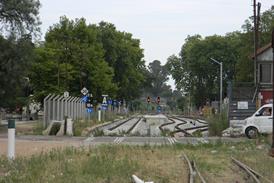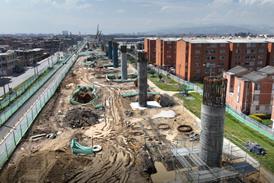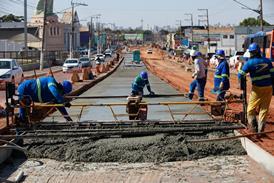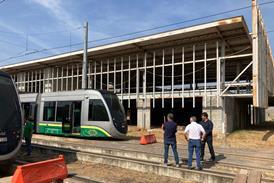AS THE European Union prepares to welcome new members from eastern Europe, transport politicians are taking stock of progress in existing member states and attempting to assess the needs of tomorrow’s community. At the Pan-European Railway Conference staged by the International Union of Railways, the Community of European Railways and Unife in Budapest on February 10-11, delegates examined what had happened since the pan-European transport conference held in Helsinki in 1997.
That event saw the establishment of 10 pan-European transport corridors, several of which included major rail routes where substantial upgrading was required. To find out in more detail what would be needed, the European Commission ordered a study entitled Transport Infrastructure Needs Assessment. This has helped to identify priorities for long-term transport investment in central and eastern Europe, and European Transport Commissioner Loyola de Palacio said in Budapest that raising the standards of rail and road networks in the candidate countries would require 90bn euros by 2015.
De Palacio also announced that the Commission planned to reopen the debate on transport infrastructure funding in the candidate countries in conjunction with the European Investment Bank, focusing in particular on partnerships between the public and private sectors. She remarked that ’the task of revitalising the railways of central Europe but also those of the European Union (our italics) is undoubtedly colossal, but is more crucial than ever as a means of rising to the challenge of sustainable mobility with a minimal environmental impact.’
De Palacio is clearly concerned that not enough is being done in western Europe for rail to succeed in its ambition of regaining market share from road and air. Just what an opportunity this represents is underlined by recent concerns expressed in Brussels about congestion in the skies and flight delays. Air traffic over France alone is expected to double from 2·4 million flights last year to 4·8 million by 2015. Delays are endemic, and transport ministers agreed in January to try and reduce hold-ups to the level of 1997 from this summer.
One opportunity is surely the London - Brussels - K




















